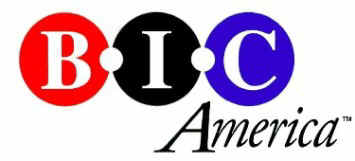Overall: There are some great things about this musical adaptation of TALES OF THE CITY, now playing at A.C.T. in San Francisco! There are a few truly NOT great things, too. The end result is having witnessed a 'work in progress' of a piece that should be a bit further along by now. The running times during this two week preview period have been rumored between 2:40 and 3 hours. Our production Sunday night was a solid 3 hours. (Mind you, it didn't feel that long!)
The show opens with a trademark Scissor Sisters (Jake Spears and John Garden) disco homage (mirror balls included!) before launching into fairly tame musical comedy territory. The cast is given some great music to perform, particularly some of the ballads for the women. Anna Madrigal's Act One curtain anthem is fabulous. Mother Mucca's production number at the Blue Moon Lodge, with her 'girls', is a show stopper and could generate its own encore, if staged appropriately. The male chorus has a "Gay Brunch Scene" that is probably the most entertaining moment in the show. It's a nearly unnecessary moment and if it weren't for it's fun quotient, would risk being cut. Mona has a wonderful ballad in the second act after she runs away and Mouse's coming out letter could be the men's best song, if staged with some sort of interest. I do wish that, given the size and scope of the cast, there were some sort of ensemble recap, a la "Les Miz/West Side Story", but there isn't a 'grand company moment'.
The choreography and musical staging is terrible. I do not know of Larry Keigwin, but what he's done here is a step beyond just marking production numbers. With only a couple exceptions, the cast basically lines up and step kicks. In unison. It's very amateurish and at times embarrassing.
Jeff Whitty's libretto is nearly slavish to the book, including a bit of an excerpt from the second to help wrap one of the plots up. This is where it gets a bit bumpy though. Mary Ann's second 'boyfriend', Norman, is uncomfortably SQUEEZED into the second act. It reaches nearly laughable extremes as his story is condensed, virtually recited and resolved (blackmailing, child pornography and the cliff dive), all within a five minute scene that needs to be responsible for changing Mary Ann's innocent view of human nature. It is a nearly farcical amount of detail that must be explained away and given the intricacies of the plotlines and the lasting effect it must have on Mary Ann, the character can't really be cut. Yet, it is hard to justify adding another scene or extending any of the existing ones, without cutting some of the slack from somewhere else. (Perhaps a little less time spent with boyfriend #1 (Beauchamp Day), who is over written to begin with?)
The core ensemble of principals is larger than the chorus, who themselves step into some decent sized supporting roles. Maupin's characters, particularly the women, are wonderfully portrayed. Judy Kaye could be a bit more 'butch' as Anna Madrigal, but she delivers the goods from the revelation on. Mary Birdsong is great as Mona Ramsey as are the showstopping Kathleen Monteleone as DeDe and Diane Findlay as Mother Mucca! Betsey Wolfe sounds great as Mary Ann. It is the most difficult role, particularly given the second act.
The Maupin's male characters have never been quite as exciting. Wesley Taylor is adorable as Mouse and Josh Breckenridge is gorgeous as his boyfriend John Fielding. (He is unable to vocally keep up, though.) Richard Poe is great as Edward Halcyon, and benefits from only being required a single duet with Madrigal. The rest of the men just don't seem to be having as much fun. Andrew Samonsky over hammers the misogynist, Beauchamp. Patrick Lane's Brian is nearly an afterthought. And then there is the problem of Norman, played Manoel Felciano. Felciano does his best with THE PROBLEM role of the entire production.
The design of production is workable, though the '70s polyester is almost TOO authentic and cheesy. Madrigal is given some great, flowing star-quality robes, though. The multi-tiered set is barely used beyond the stage floor. It's somewhat reminiscent of COMPANY in which each space is brought in by wagon, regardless of which floor of the building it is located on. However, given the innumerable settings (Barbary Lane's five apartments, Halcyon Communications, Land's End, Ocean Beach, a bath house, various bars, etc.), I'm not sure there is much more of a way around it. It's as if director Jason Moore was so overwhelmed by the amount of material that he was unable to conceptualize or stylize a way of presenting it.
The show opens with a trademark Scissor Sisters (Jake Spears and John Garden) disco homage (mirror balls included!) before launching into fairly tame musical comedy territory. The cast is given some great music to perform, particularly some of the ballads for the women. Anna Madrigal's Act One curtain anthem is fabulous. Mother Mucca's production number at the Blue Moon Lodge, with her 'girls', is a show stopper and could generate its own encore, if staged appropriately. The male chorus has a "Gay Brunch Scene" that is probably the most entertaining moment in the show. It's a nearly unnecessary moment and if it weren't for it's fun quotient, would risk being cut. Mona has a wonderful ballad in the second act after she runs away and Mouse's coming out letter could be the men's best song, if staged with some sort of interest. I do wish that, given the size and scope of the cast, there were some sort of ensemble recap, a la "Les Miz/West Side Story", but there isn't a 'grand company moment'.
The choreography and musical staging is terrible. I do not know of Larry Keigwin, but what he's done here is a step beyond just marking production numbers. With only a couple exceptions, the cast basically lines up and step kicks. In unison. It's very amateurish and at times embarrassing.
Jeff Whitty's libretto is nearly slavish to the book, including a bit of an excerpt from the second to help wrap one of the plots up. This is where it gets a bit bumpy though. Mary Ann's second 'boyfriend', Norman, is uncomfortably SQUEEZED into the second act. It reaches nearly laughable extremes as his story is condensed, virtually recited and resolved (blackmailing, child pornography and the cliff dive), all within a five minute scene that needs to be responsible for changing Mary Ann's innocent view of human nature. It is a nearly farcical amount of detail that must be explained away and given the intricacies of the plotlines and the lasting effect it must have on Mary Ann, the character can't really be cut. Yet, it is hard to justify adding another scene or extending any of the existing ones, without cutting some of the slack from somewhere else. (Perhaps a little less time spent with boyfriend #1 (Beauchamp Day), who is over written to begin with?)
The core ensemble of principals is larger than the chorus, who themselves step into some decent sized supporting roles. Maupin's characters, particularly the women, are wonderfully portrayed. Judy Kaye could be a bit more 'butch' as Anna Madrigal, but she delivers the goods from the revelation on. Mary Birdsong is great as Mona Ramsey as are the showstopping Kathleen Monteleone as DeDe and Diane Findlay as Mother Mucca! Betsey Wolfe sounds great as Mary Ann. It is the most difficult role, particularly given the second act.
The Maupin's male characters have never been quite as exciting. Wesley Taylor is adorable as Mouse and Josh Breckenridge is gorgeous as his boyfriend John Fielding. (He is unable to vocally keep up, though.) Richard Poe is great as Edward Halcyon, and benefits from only being required a single duet with Madrigal. The rest of the men just don't seem to be having as much fun. Andrew Samonsky over hammers the misogynist, Beauchamp. Patrick Lane's Brian is nearly an afterthought. And then there is the problem of Norman, played Manoel Felciano. Felciano does his best with THE PROBLEM role of the entire production.
The design of production is workable, though the '70s polyester is almost TOO authentic and cheesy. Madrigal is given some great, flowing star-quality robes, though. The multi-tiered set is barely used beyond the stage floor. It's somewhat reminiscent of COMPANY in which each space is brought in by wagon, regardless of which floor of the building it is located on. However, given the innumerable settings (Barbary Lane's five apartments, Halcyon Communications, Land's End, Ocean Beach, a bath house, various bars, etc.), I'm not sure there is much more of a way around it. It's as if director Jason Moore was so overwhelmed by the amount of material that he was unable to conceptualize or stylize a way of presenting it.
 Maxxxxx says re TALES OF THE CITY: Doobie doobie dooo-oooo
Maxxxxx says re TALES OF THE CITY: Doobie doobie dooo-ooooYou can contact Maxxxxx or myself here: JayCBird@AOL.COM CLICK HERE for more...






















 Pseudomyxoma Peritonei (Huh???)
Pseudomyxoma Peritonei (Huh???) Fluidtoons! By Brett W. Thompson!
Fluidtoons! By Brett W. Thompson!
 THE EVENING CLASS (by Michael Guillen)
THE EVENING CLASS (by Michael Guillen) Television Without Pity!
Television Without Pity! John Rutherford's Blog for COLT Studio Group
John Rutherford's Blog for COLT Studio Group


